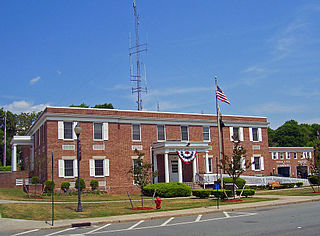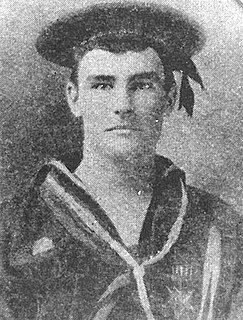| Hudson Van Etten | |
|---|---|
| Born | May 17, 1874 Port Jervis, New York |
| Died | October 27, 1941 (aged 67) |
| Place of burial | Prospect Hill Cemetery Greenland, New Hampshire |
| Allegiance | United States of America |
| Service/ | United States Navy |
| Rank | Seaman |
| Unit | U.S.S. Nashville |
| Battles/wars | Spanish–American War |
| Awards | Medal of Honor |
Hudson Van Etten (May 17, 1874 – October 27, 1941) was a seaman serving in the United States Navy during the Spanish–American War who received the Medal of Honor for bravery.

The United States Navy (USN) is the naval warfare service branch of the United States Armed Forces and one of the seven uniformed services of the United States. It is the largest and most capable navy in the world and it has been estimated that in terms of tonnage of its active battle fleet alone, it is larger than the next 13 navies combined, which includes 11 U.S. allies or partner nations. with the highest combined battle fleet tonnage and the world's largest aircraft carrier fleet, with eleven in service, and two new carriers under construction. With 319,421 personnel on active duty and 99,616 in the Ready Reserve, the Navy is the third largest of the service branches. It has 282 deployable combat vessels and more than 3,700 operational aircraft as of March 2018, making it the second-largest air force in the world, after the United States Air Force.

The Spanish–American War was an armed conflict between Spain and the United States in 1898. Hostilities began in the aftermath of the internal explosion of USS Maine in Havana harbor in Cuba, leading to U.S. intervention in the Cuban War of Independence. The war led to emergence of U.S. predominance in the Caribbean region, and resulted in U.S. acquisition of Spain's Pacific possessions. That led to U.S. involvement in the Philippine Revolution and ultimately in the Philippine–American War.

The Medal of Honor is the United States of America's highest and most prestigious personal military decoration that may be awarded to recognize U.S. military service members who have distinguished themselves by acts of valor. The medal is normally awarded by the President of the United States in the name of the U.S. Congress. Because the medal is presented "in the name of Congress", it is often referred to informally as the "Congressional Medal of Honor". However, the official name of the current award is "Medal of Honor." Within the United States Code the medal is referred to as the "Medal of Honor", and less frequently as "Congressional Medal of Honor". U.S. awards, including the Medal of Honor, do not have post-nominal titles, and while there is no official abbreviation, the most common abbreviations are "MOH" and "MH".






